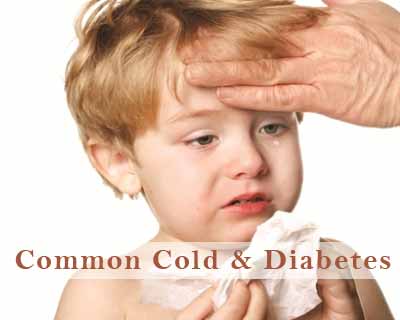- Home
- Editorial
- News
- Practice Guidelines
- Anesthesiology Guidelines
- Cancer Guidelines
- Cardiac Sciences Guidelines
- Critical Care Guidelines
- Dentistry Guidelines
- Dermatology Guidelines
- Diabetes and Endo Guidelines
- Diagnostics Guidelines
- ENT Guidelines
- Featured Practice Guidelines
- Gastroenterology Guidelines
- Geriatrics Guidelines
- Medicine Guidelines
- Nephrology Guidelines
- Neurosciences Guidelines
- Obs and Gynae Guidelines
- Ophthalmology Guidelines
- Orthopaedics Guidelines
- Paediatrics Guidelines
- Psychiatry Guidelines
- Pulmonology Guidelines
- Radiology Guidelines
- Surgery Guidelines
- Urology Guidelines
Common Cold May Increase Diabetes Risk in Kids

London : Viral respiratory tract infections like the common cold, flu, tonsillitis, bronchitis and pneumonia during the first six months of life are likely to increase the risk for type 1 diabetes in children, says a new study. The findings suggest that the first half-year of life is crucial for the development of the immune system and of autoimmune diseases such as type 1 diabetes (T1D).
According to researchers, T1D risk increased in children who had a respiratory tract infection between birth and 2.9 months or between three and 5.9 months of age compared with children who had no respiratory tract infections in these age intervals.
“Our findings show that viral respiratory tract disorders during the first six months of life significantly increase the risk of children developing type 1 diabetes,” said one of the researchers, Andreas Beyerlein, from Helmholtz Zentrum Munchen in Germany.
Infants are particularly susceptible to respiratory tract infections like the common cold, flu, tonsillitis, bronchitis and pneumonia, because, unlike adults, their immune systems have not acquired the immunity to stave off some of the viruses that cause them.
The study included 2,95,420 infants of whom 720 were diagnosed with T1D over a median follow-up of 8.5 years for an incidence of 29 diagnoses per 100,000 children annually.
At least one infection was reported during the first two years of life in 93 per cent of all children and in 97 per cent of children with T1D. Most children experienced respiratory and viral infections. T1D risk was also found increased among children who experienced a viral infection between birth and 5.9 months of age.
The study was published in the journal JAMA.

Disclaimer: This site is primarily intended for healthcare professionals. Any content/information on this website does not replace the advice of medical and/or health professionals and should not be construed as medical/diagnostic advice/endorsement or prescription. Use of this site is subject to our terms of use, privacy policy, advertisement policy. © 2020 Minerva Medical Treatment Pvt Ltd